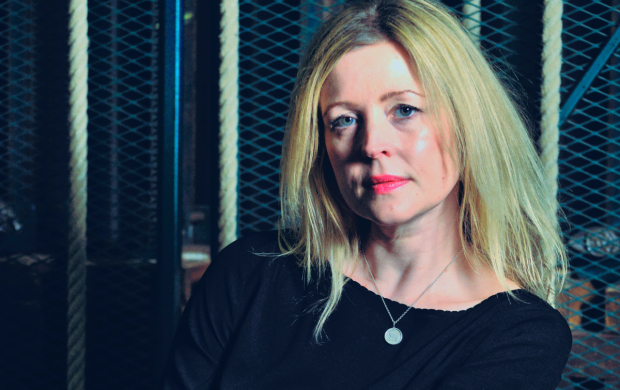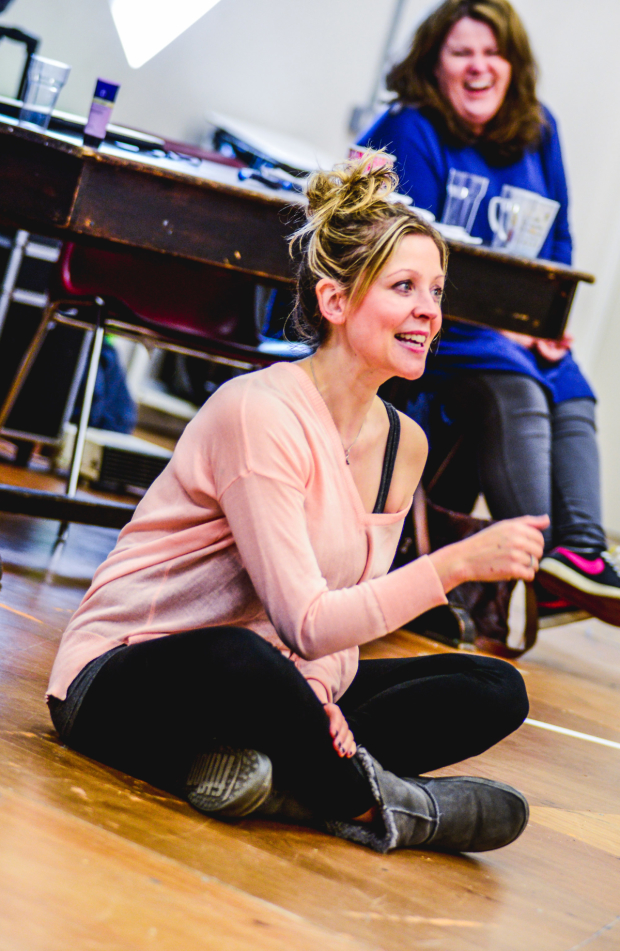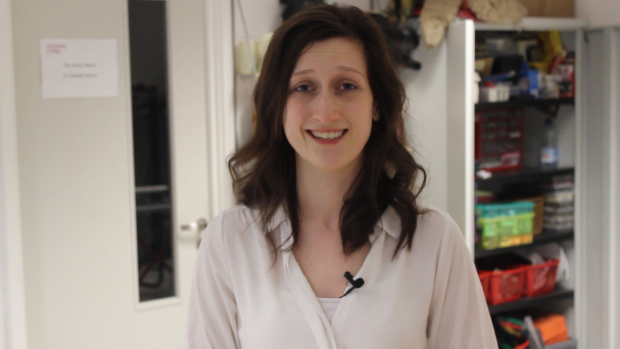Rachel O'Riordan: 'My generation of ADs don’t have a sense of entitlement'

© KIRSTEN MCTERNAN
Celtic connections are strong with Rachel O’Riordan. Before becoming artistic director of the Sherman Theatre, one of Wales’ biggest producing houses, she was artistic director of Perth Theatre in Scotland. She grew up in Belfast and it was there that she founded Ransom, her theatre company, in 2002. Scotland, Ireland, Wales: she’s made waves in England too, not least with her recent production of Iphigenia in Splott, a play about a young woman living in poverty in Cardiff, written by Gary Owen, which earned its leading lady Sophie Melville an Evening Standard Award nomination.
O'Riordan has been bold with the programming at Sherman since she began in 2014, staging a modern take on Romeo and Juliet, Simon Stephens‘ adaptation of A Doll’s House and the Bruntwood Award-winning Bird by Katherine Chandler, among much else. But there’s more to come and last month it was announced that the Royal Court would be undertaking the first ever co-production with a Welsh theatre – Gary Owen‘s Killology, which will open at the Sherman Theatre before it heads to London. The Sherman is a lean theatre machine, but if anyone can pull off remarkable results with a tiny team, it’s O'Riordan. As part of our regional focus this month, we talked to her about the past, present and future of the Sherman Theatre.
Killology is your second collaboration with Gary Owen, can you explain a bit more about it?
Gary Owen is one of the great annotators of the current human condition. He is one of the great compassionate artists of our time. Killology is about video gaming, but at its core, I suppose, it is about how a virtual experience can affect the actual life of someone. He aligns the conception of extreme violence with the reality of what a lot of young people are living amongst.
Owen’s Royal Court debut was Violence and Son, which got pretty dark…
Whilst the work is dark and scary he is trying to get an audience to feel something. The characters in Killology, particularly the central character of the young boy, is in an impossible situation. Gary is just brilliant at looking at the people who are vulnerable, overlooked and making them the centre of the narrative.
You have pulled off the first Royal Court co-production with a Welsh theatre, what is it like working with Vicky Featherstone?
I think the Royal Court’s new season is possibly the best season of new work I have ever seen. It is testament to how Vicky Featherstone is making such a success of it all. You might also assume that we talked it through in her office in London, but no – it was here in Cardiff. I am extraordinarily proud of what she is doing, I am extraordinarily proud to be in her season.
The world premiere is going to be at the Sherman, was it important to get the show in Wales before it moved to the Royal Court?
As I recall, Vicky said straight away [that we should do it like that]. She knows how powerful the Royal Court is and she wanted to make sure there was equity between the two buildings, which is testament to her integrity.
You moved to Cardiff in 2014, what is it like working in Wales?
It’s brilliant. Cardiff is a particularly vibrant city. There are always challenges with being outside of London, as there are for every venue. But Cardiff is an ethnically and demographically diverse city. It has an extraordinary history and there is a great sense of identity here – it’s bilingual and it’s passionate about that. In a way, it feels a lot like Ireland. With our new community engagement project Love, Cardiff, we are tapping into the spirit of the city too. It is about the heritage of the city told through the stories of those who live, work and walk along the City Road.
You have done a lot of new writing and new versions of classic texts since you got here, where are you hoping to take Sherman?
I am putting titles out there that I feel audiences will respond to strongly, will recognise and will want to see. I’ve taken a particular route with shows in making many of them actor-musician and I am passionate about live music. We are going to move into producing more. And we are going to work towards producing more contemporary classic texts.

© KIRSTEN MCTERNAN
More producing?
Yes, I would like to continue on the route we are on. I would like to do more productions, more co-productions, more international work and more touring. More new work and I am very focused on Welsh playwrights.
You are a small team though – only 18 permanent members of staff…
Yes it is mad. Before I got here, Sherman suffered a few funding cuts, so when I came one of the things I had to think about was how we can cut back and do more at the same time. So everybody who works here is really attuned to that as a house ambition. Our company culture is very hard working and quite robust. When I took the job I had an ambition to turn the theatre into a producing house of a standing with some of the best across the UK such as the Liverpool Everyman and the Royal Exchange.
You seem to be someone who believes in collaboration…
I’m a great believer in collaboration and partnership. I’m not an ivory tower. I am not backwards in coming forward and saying: Let’s work together. To be a good AD you have to be both proactive and reactive at the same time. The co-production with the Royal Exchange in Manchester, for example, that was Sarah [Frankcom’s] idea.
A lot of ADs talk in a similar way about working with other theatres. Is this happening more than it used to?
I think it may be a generational thing. A lot of the people who are in these AD roles came up through a different culture than the people who preceded us. I think my generation is very aware of the fact that no one deserves a job as brilliant as mine: you have to earn it everyday. We don’t have any sense of entitlement.
What are you most proud of in the last two years?
My team, the fact that we are all still standing and the fact that a theatre who operates as leanly as us is punching as hard as we are: I am really proud of my team.











